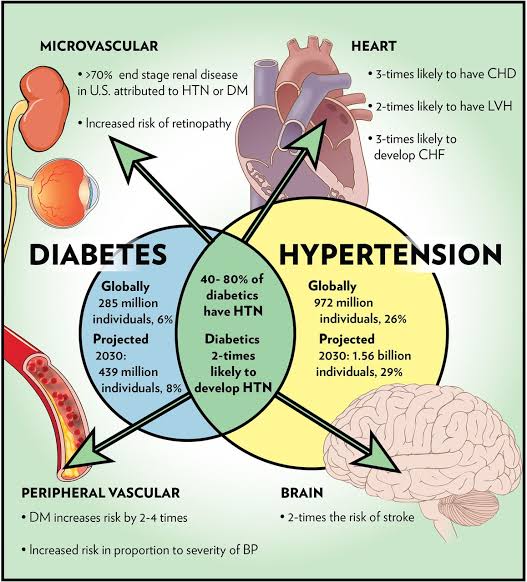In a transformative push to fortify Nigeria’s financial system, the banking sector is on track to attract an additional N900 billion in capital by the close of 2025, according to a new report from Agusto & Co. Limited, a leading pan-African credit rating agency. The projection, outlined in the agency’s 2025 Nigerian Banking Industry Report, underscores the sector’s resilience amid global and domestic macroeconomic pressures and highlights the ongoing success of the Central Bank of Nigeria’s (CBN) recapitalisation directive. With banks having already raised N2.5 trillion since March 2024, the anticipated capital injection signals robust investor confidence and positions the industry for significant growth. As Nigeria navigates a challenging economic landscape, the recapitalisation drive is set to strengthen the sector’s ability to weather risks and seize new opportunities, cementing its role as a cornerstone of the nation’s economy.
A Sector Defying Economic Headwinds
The Nigerian banking sector has demonstrated remarkable resilience in the face of formidable challenges, including high inflation, currency volatility, and a contractionary monetary policy stance. According to Agusto & Co.’s 2025 report, the sector’s total assets and contingents are projected to reach N242.3 trillion ($151.4 billion) by December 2025, a 44.9 percent increase from N186.6 trillion in December 2024. This growth reflects the industry’s ability to adapt to a complex economic environment while maintaining strong financial performance.
The report attributes the sector’s resilience to several factors, including robust liquidity, steady profitability, and strategic fundraising efforts. Despite high interest rates, which have increased borrowing costs for businesses and consumers, the industry’s liquidity ratio climbed to 59.4 percent in 2024, up from 43.5 percent in 2023. Agusto & Co. forecasts that this ratio will surpass 60 percent by the end of 2025, driven by consistent yields on treasury securities and prudent liquidity management. These metrics highlight the sector’s ability to maintain ample cash reserves to meet obligations, even in a high-interest-rate environment.
The banking sector’s performance is particularly notable given Nigeria’s macroeconomic challenges in 2025. Inflation, which has hovered above 30 percent for much of the year, has eroded purchasing power and strained corporate earnings. The naira’s volatility, coupled with foreign exchange shortages, has further complicated the operating environment for banks, which rely on foreign currency transactions for trade finance and international remittances. Yet, the sector’s ability to grow its asset base and maintain strong liquidity underscores its adaptability and strategic foresight.
The CBN’s Recapitalisation Directive: A Catalyst for Growth
At the heart of the sector’s transformation is the CBN’s minimum paid-up capital directive, introduced in March 2024 and set to be fully effective by March 31, 2026. The directive requires banks to meet new capital thresholds based on their license categories: N500 billion for commercial banks with international authorization, N200 billion for those with national authorization, and N50 billion for those with regional authorization. The policy aims to strengthen banks’ capital buffers, enhance their ability to absorb economic shocks, and support Nigeria’s broader economic growth objectives.
Since the directive’s introduction, Nigerian banks have mobilized substantial funds to meet these requirements. According to Agusto & Co., the sector raised N1.7 trillion in 2024 and an additional N800 billion between January and July 2025, totaling N2.5 trillion in new capital. Eight banks have already met the minimum capital threshold, though the CBN and the Securities and Exchange Commission (SEC) are still verifying some of the funds raised to ensure compliance with regulatory standards.
The recapitalisation drive has been driven primarily by domestic investors, reflecting strong local confidence in the stability and growth potential of Nigeria’s banking sector. This influx of domestic capital is a significant departure from previous recapitalisation exercises, which often relied heavily on foreign investment. The shift underscores the growing maturity of Nigeria’s capital markets and the willingness of local investors to back the banking sector’s transformation.
The anticipated N900 billion capital injection by the end of 2025 will further bolster banks’ financial resilience, enabling them to navigate risks such as non-performing loans (NPLs) and currency volatility. It will also provide a foundation for pursuing growth opportunities, including expanding lending to small and medium-sized enterprises (SMEs), investing in digital infrastructure, and supporting Nigeria’s economic diversification efforts. As the March 2026 deadline approaches, banks are intensifying their fundraising efforts, with some exploring public offerings, private placements, and mergers to meet the CBN’s requirements.
Navigating Funding Pressures with Innovative Strategies
The CBN’s contractionary monetary stance, characterized by high interest rates to curb inflation, has created funding pressures for banks, increasing the cost of capital and squeezing net interest margins. However, Nigerian banks have responded with innovative strategies to manage these challenges. According to Agusto & Co., banks raised approximately N750 billion through commercial paper issuances in the first seven months of 2025, a testament to their ability to tap alternative funding sources.
Commercial papers, short-term debt instruments issued by corporations, have become an increasingly popular tool for banks to raise liquidity without relying solely on traditional deposits or long-term borrowing. This approach allows banks to diversify their funding base, reduce reliance on volatile deposit inflows, and manage liquidity in a high-interest-rate environment. The success of these issuances reflects strong investor appetite for bank-backed securities, driven by confidence in the sector’s stability and growth prospects.
The report also highlights the role of treasury securities in supporting banks’ liquidity. Yields on government bonds and treasury bills have remained attractive in 2025, providing banks with a reliable source of income and liquidity. This has been particularly important in an environment where lending to the private sector carries heightened risks due to economic uncertainty. By maintaining a balanced portfolio of assets, including government securities, banks have been able to sustain profitability while meeting regulatory liquidity requirements.
A Sector Poised for Growth
Agusto & Co.’s report paints an optimistic picture of the Nigerian banking sector’s growth outlook, driven by the recapitalisation drive and strategic adaptations to macroeconomic challenges. The projected N242.3 trillion in total assets by December 2025 reflects the sector’s potential to play a central role in Nigeria’s economic development. Banks are expected to expand their lending activities, particularly to SMEs, which are critical to job creation and economic diversification. The sector’s focus on digital banking, spurred by the CBN’s push for a cashless economy, is also driving investment in technology and innovation.
The CBN’s recent directive to migrate to the ISO 20022 messaging standard and implement geo-tagging for payment terminals by October 31, 2025, further underscores the importance of technology in the sector’s future. These reforms, aimed at enhancing transparency and reducing fraud, will require banks to invest in advanced payment infrastructure, creating opportunities for fintech partnerships and digital product development. Banks that successfully leverage these opportunities could capture a larger share of Nigeria’s growing digital payments market, which is projected to expand significantly in the coming years.
The recapitalisation drive also positions banks to pursue regional and international expansion. With Nigeria serving as a financial hub for West Africa, banks with international authorization are well-placed to capitalize on cross-border trade and investment opportunities. The influx of new capital will enable these banks to strengthen their balance sheets, expand their branch networks, and compete more effectively in the African market.
Challenges in the Path Ahead
Despite the positive outlook, the Nigerian banking sector faces significant challenges as it navigates the recapitalisation process and macroeconomic headwinds. High inflation and interest rates continue to strain corporate and consumer borrowers, increasing the risk of NPLs. While the sector’s NPL ratio has remained relatively low, at around 4 percent in 2024, sustained economic pressures could push this figure higher, particularly for banks with significant exposure to vulnerable sectors like manufacturing and retail.
The CBN’s stringent regulatory requirements, including the recapitalisation directive and new payment system standards, also pose operational challenges. Smaller banks, particularly those with regional or national authorization, may struggle to raise the required capital, potentially leading to mergers, acquisitions, or license downgrades. The verification process by the CBN and SEC adds an additional layer of scrutiny, ensuring that only credible capital inflows are recognized, but it may also delay some banks’ compliance efforts.
Foreign exchange constraints remain a persistent challenge, as Nigeria’s reliance on oil exports leaves the naira vulnerable to global commodity price fluctuations. Banks with significant foreign currency exposure, particularly those involved in trade finance, must navigate these risks carefully to avoid losses. The CBN’s efforts to stabilize the naira, including interventions in the foreign exchange market, will be critical to supporting the sector’s stability.
Domestic Confidence and Global Implications
The dominance of domestic investors in the recapitalisation drive is a significant development for Nigeria’s banking sector. Unlike previous recapitalisation exercises, which relied heavily on foreign capital, the current influx reflects the growing sophistication of Nigeria’s capital markets and the confidence of local investors. This trend aligns with broader efforts to deepen Nigeria’s financial markets, reduce dependence on foreign capital, and promote economic self-reliance.
The recapitalisation drive also has implications for Nigeria’s integration into the global financial system. As banks strengthen their capital bases, they will be better equipped to meet international regulatory standards, such as those set by the Basel Committee on Banking Supervision. This could attract foreign investors and partners, particularly as Nigeria seeks to position itself as a hub for financial services in Africa. The adoption of ISO 20022 and other global standards will further enhance the sector’s competitiveness, enabling Nigerian banks to facilitate cross-border transactions more efficiently.
A Transformative Moment for Nigerian Banking
The N900 billion capital injection projected by Agusto & Co. marks a transformative moment for Nigeria’s banking sector. The recapitalisation drive, combined with strong liquidity, robust profitability, and strategic adaptations to macroeconomic challenges, positions the industry for sustained growth. As banks raise capital, invest in technology, and expand their lending activities, they will play a critical role in supporting Nigeria’s economic recovery and diversification.
The sector’s resilience in the face of economic headwinds is a testament to its adaptability and strategic foresight. By leveraging domestic capital, embracing digital transformation, and aligning with global standards, Nigerian banks are laying the foundation for a stronger, more inclusive financial system. However, the challenges of inflation, currency volatility, and regulatory compliance will require careful navigation to ensure sustained success.
As the March 2026 deadline for recapitalisation approaches, the Nigerian banking sector stands at a crossroads. The projected N900 billion capital boost will strengthen banks’ ability to weather risks and seize opportunities, but it will also test their ability to innovate and adapt in a rapidly evolving environment. With domestic investors leading the charge and the CBN providing regulatory guidance, the sector is poised to emerge stronger, more resilient, and better equipped to drive Nigeria’s economic growth in the years ahead.








